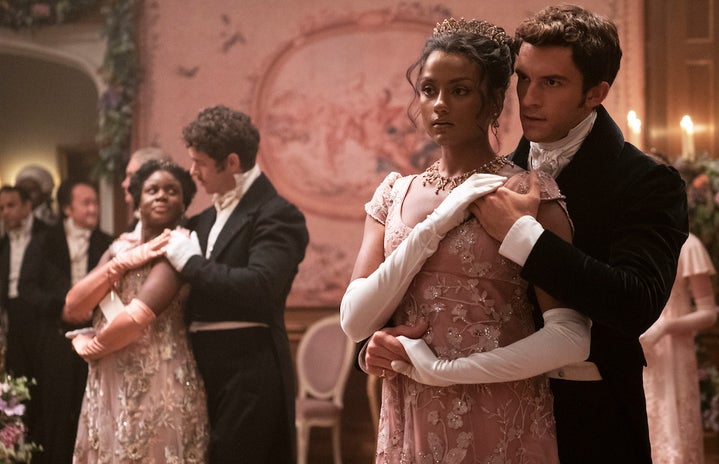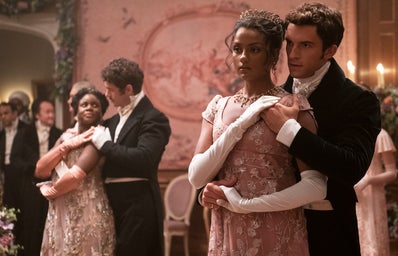Everyone is familiar with the act of turning to a neighbor and whispering a coveted secret. It’s messy, fun, entertaining, and hurtful even. But alas, scandal makes the world go round.
Maybe that is the reason shows like Bridgerton, which had a successful season 2 premiere on March 25, are so popular. The desire for gossip is fueled by having an underdog or wallflower hold a secret power over all the elite personnel in the story. It creates a sense of triumph that a beautifully flawed background character with an alluring voice stirs the pot in a way that keeps the audience engaged and their hands clean of the mess. This writer-in-the-dark theme is not a new one; many of today’s generation grew up with it ingrained in the most popular films and shows.
The first time I recall seeing this narrative was in Radio Rebel, which made its debut on the Disney Channel 10 years ago. Debby Ryan played a mousy high schooler with an anonymous influential radio show under the name of Radio Rebel, which gets more attention once people start to question her identity. The movie was mainly based on authenticity and encouraged others to be themselves, but there are moments where Radio Rebel calls her classmates out by name, sparking gossip and speculation. While this is largely a lighthearted narrative, because it’s Disney after all, it still sets a precedent for how early kids were exposed to the idea that being an underdog is acceptable if you can get people talking about each other.
The next writer in the dark I observed was (spoiler alert) Dan Humphrey as Gossip Girl. Gossip Girl was a nameless blogger who terrorized Manhattan’s elite and held them accountable for each scandal and misstep. I think this narrative spoke to Gen Z particularly because it centered around technology and how phones can be mass weapons of destruction in teenage lives. Each text that Gossip Girl sent out made the audience’s eyes captivated even more. While each person watching couldn’t be a famous upper Eastsider, they could be inspired to act as their town’s gossip girl. The level of relatability makes Gossip Girl and similar characters seem like icons as if actions don’t have consequences.
I shamelessly binged the second season of Bridgerton shortly after its release, which brings us to the trifecta of undercover scandal reporters. Bridgerton is narrated by Lady Whistledown who is an unidentified scandal sheet writer that observes the ton in 19th century London as lords and ladies work to find their match. Season two was filled with the most amazing enemies to lovers, pining, and tension, but I particularly liked seeing the overarching plotline of Lady Whistledown be played out more. Her true identity as unsuspecting Penelope Featherington was revealed to the audience at the end of last season, so there is little mystery left to feed on. There does seem to be some consequences shown in this version of the trope, however. As the Queen is seen trying to uncover her identity, Lady Whistledown must betray her best friend to clear her name. I liked that this narrative was somewhat realistic with the plot of betrayal sinking into mystery and notoriety. It felt more fulfilling, maybe even dramatic, to see the conflict and betrayal presented clearly.
I don’t think it is the intention of any one of these productions to glamorize scheming, but as a generation raised on these forms of media, it’s easy to internalize the message. I think bringing a sense of realism to the writer in the dark trope might dilute some of the lasting toxicity that may be perpetuated by having unpopular young kids rise to fame by betraying their peers.


